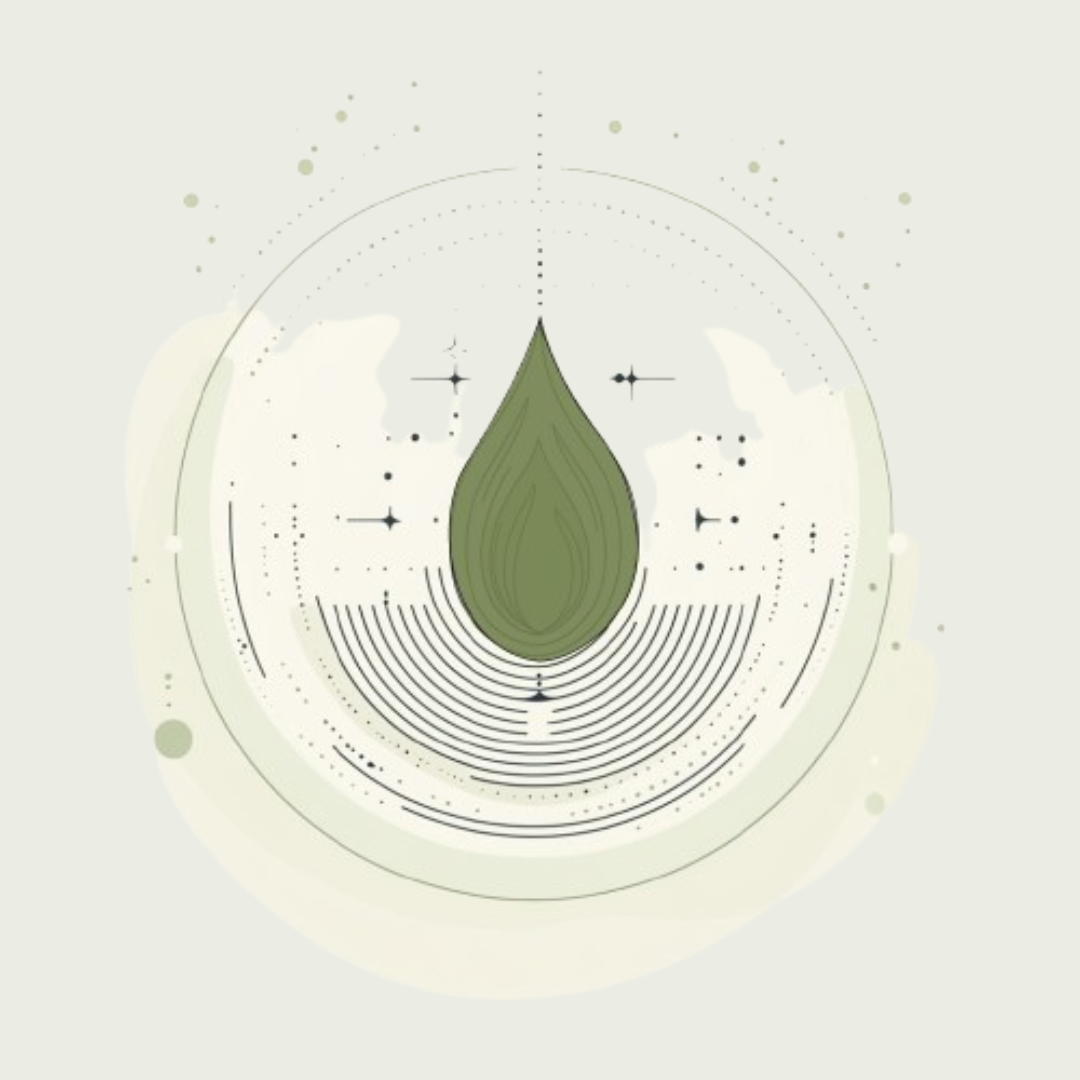Highlights
The brain thrives when given the right support, yet modern lifestyles often neglect its needs. Stress, poor nutrition, and environmental factors contribute to memory decline, which affects nearly 40% of individuals by their mid-30s, according to research.
In India alone, neurological conditions have led to millions of DALYs(disability-adjusted life years) and deaths annually, with a staggering 39% increase in deaths over the past three decades. But what if there was a natural Ayurvedic way to support your brain health and improve cognitive performance?
According to Ayurveda, herbs have been used for centuries in traditional medicine to enhance memory and focus. For instance, Brahmi is known to improve memory retention by 25% while Shankhpushpi enhances learning ability and reduces mental fatigue.
Are you ready to discover what herbs help with memory and focus and transform your brain health? Let’s explore the answers.
1. Brahmi (Bacopa monnieri)
Brahmi, also known as Bacopa monnieri, has been revered in Ayurvedic medicine for centuries. Esteemed for its cognitive-enhancing properties, this herb is widely used to improve memory, focus, and mental clarity.
Effects on Your Brain
The cognitive benefits of Brahmi are attributed to its active compound, bacosides. These natural chemicals are both neuroprotective and antioxidant, helping to protect brain cells from oxidative damage while promoting the repair and regeneration of neurons. This makes Brrahmi particularly beneficial for long-term cognitive health and memory retention.
Kerala Ayurveda’s Brahmi Ghritham enriched with potent herbs like Brahmi and Sankupushpi, is crafted following the timeless recipe from ‘Sahasrayogam’ to enhance memory, focus, and recall naturally.
Scientific Insights
Modern studies have validated Brahmi’s traditional uses:
- In a controlled study involving 60 elderly participants, those taking Brahmi supplements experienced a 25% improvement in memory acquisition and retention compared to a placebo group.
- Brahmi has also shown promise in improving learning capacity and information recall, making it a valuable tool for students and professionals alike.
Dosing Recommendations
Brahmi is typically taken in doses of 300–600 mg daily for up to 12 weeks. Studies suggest this dosage is effective for improving memory and cognitive function. However, individuals should consult a healthcare provider to determine the appropriate dosage for their specific needs.
Safety and Side Effects
While generally considered safe, Brahmi may cause mild side effects, especially when taken orally in higher doses. These include:
- Stomach cramps
- Nausea
- Dry mouth
Drug Interactions
Brahmi may interact with certain medications, including:
- Anticholinergic drugs:
These medications block acetylcholine, while Bacopa increases it, potentially reducing their effectiveness.
- Cholinergic drugs:
Used for Alzheimer’s and glaucoma, these may amplify side effects when combined with Bacopa.
- Medications metabolised by the liver (CYP enzymes):
Brahmi may alter how these drugs are broken down, changing their efficacy or side effects.
Disclaimer: This article is for informational purposes only and should not be considered medical advice. Always consult a qualified healthcare professional or Ayurvedic practitioner before starting any new herbal regimen, especially if you are currently taking medications, have pre-existing health conditions, or are pregnant or breastfeeding. For personalised advice on Ayurvedic herbs and their safe integration into your routine, connect with certified Kerala Ayurveda doctors.
Also read: 10 Important Benefits of Brahmi and How to Use it
2. Rosemary (Rusmari)
Rosemary (Rosmarinus officinalis) is a flavorful culinary herb and a versatile plant with a range of cognitive and health benefits. In Ayurveda, it is known for delaying brain age. Its medicinal properties have been explored in traditional practices and supported by emerging scientific evidence. From enhancing memory to supporting skin health, rosemary offers numerous advantages for mental and physical well-being.
Effects on Your Brain
- Boosts Memory and Focus: The herb’s benefits for cognition are largely attributed to 1,8-cineole, which interacts with neurotransmitter systems in the brain, enhancing mental clarity and processing.
- Research Highlights: A 2018 randomised controlled trial found that university students taking rosemary supplements for one month showed significant improvements in memory.
General Safety
- Rosemary is considered safe when used in recommended doses. The FDA classifies rosemary extracts as Generally Recognized as Safe (GRAS).
- Safe doses are around 400 mg/kg of rosemary herb.
Precautions
- Interactions with Medications: Rosemary may interact with anticoagulants, blood pressure medications, and certain antiepileptic drugs. Consult a healthcare provider before medicinal use.
- Essential Oils: Highly concentrated rosemary essential oil should be diluted with a carrier oil (e.g., coconut or almond oil) before topical application. Never ingest essential oils.
Practical Applications
- Cooking: Add fresh or dried rosemary to dishes for a flavorful and health-boosting ingredient.
- Aromatherapy: Inhale rosemary essential oil by adding a few drops to a diffuser or hot water for mental clarity and relaxation.
- Tea: Steep rosemary leaves in hot water for a soothing herbal tea that supports digestion and cognition.
- Topical Use: Diluted rosemary oil can be applied to the skin for its anti-inflammatory and soothing effects.
Other side effects may include mild gastrointestinal discomfort, nausea, or dizziness.
3. Mandukaparni (Gotu Kola)
Mandukaparni, also known as Gotu Kola or Centella asiatica (CA), is a highly regarded herb in Ayurveda, classified as a Medhya Rasayana, or cognitive rejuvenator, for its ability to enhance memory and overall brain health.
Effects on Your Brain
Mandukaparni is rich in triterpenoids, known for their neuroprotective properties. These compounds support neuronal growth, improve blood circulation to the brain, and combat oxidative stress.
Scientific Insights
- Research demonstrates that Mandukaparni enhances memory retention, focus, and mental clarity across various age groups.
- It has shown promise in alleviating anxiety and depression, indirectly supporting cognitive function and emotional well-being.
Dosing Recommendations
The recommended dosage of Mandukaparni depends on the form and preparation:
- Dried Leaves or Tea: 1–2 teaspoons (5–10 g) steeped in 150 ml of boiling water for 10–15 minutes. Consuming up to three cups daily is often suggested.
- Capsules or Tablets: A typical dose ranges from 300–600 mg daily, taken once or twice per day.
- Standardised Extracts: Containing up to 100% total saponins, doses of 60 mg once or twice daily are commonly used in modern herbal medicine.
- Tinctures or Fluid Extracts: 2–4 teaspoons (10–20 ml) of tincture or ½–1 teaspoon (3–5 ml) of fluid extract per day may also be recommended.
It is important to consult a healthcare provider to determine the appropriate dosage based on individual health conditions.
Safety and Side Effects
Mandukaparni is generally well-tolerated, but mild side effects, such as nausea or dizziness, may occur in rare cases.
- Pregnancy and Breastfeeding: Avoid use due to insufficient safety data.
- Drug Interactions: This may alter the metabolism of medications processed by liver enzymes (CYP pathways).
4. Shankhapushpi (Convolvulus pluricaulis)
Shankhapushpi is a revered herb in Ayurvedic medicine, traditionally used to enhance mental clarity, intellect, and overall cognitive health. Known for its calming and neuroprotective properties, it remains a cornerstone in formulations targeting brain function.
Effects on Your Brain
- Stress Management: Shankhpushpi’s calming effects make it highly effective in reducing stress-related cognitive decline and promoting mental balance.
- Cognitive Enhancement: The herb supports improved memory, focus, and mental clarity, particularly during periods of mental fatigue or stress.
- Comprehensive Neuroprotection: Its antioxidant properties help protect brain cells from oxidative stress, enhancing long-term brain health and resilience.
Saraswatha Granules by Kerala Ayurveda is a synergic blend of herbal ingredients like Shankhpushpi, Brahmi, Ashwagandha, and Vacha, designed to improve memory, concentration, and cognitive development. Innovatively formulated for ease of consumption, it’s a natural choice for enhancing mental clarity, focus, and speech.
Scientific Insights
Modern research corroborates Shankhpushpi’s extensive use in traditional medicine:
- Studies confirm its efficacy in enhancing learning ability and reducing symptoms of mental exhaustion, benefiting students, professionals, and individuals experiencing stress.
- Its neuroprotective capabilities make it a valuable herb for managing conditions like mental hypersensitivity, emotional stress, and mild neurological disorders.
Usage and Safety
Shankhpushpi can be consumed in various forms, commonly as a syrup or powder:
- Recommended Dosage: 5–10 ml of syrup or 500 mg of powder per day.
- Preparation for Neurological Use: Decoctions of Shankhpushpi with cumin and milk are often prescribed in Ayurveda for managing ADHD, depression, and stress disorders.
5. Tulsi (Ocimum sanctum)
Tulsi known as the "Queen of Herbs," holds a revered place in Ayurvedic medicine for its powerful adaptogenic and cognitive-enhancing properties. This versatile herb not only supports physical health but also nurtures mental well-being, making it a cornerstone in holistic health practices.
Effects on Your Brain
- Stress Reduction:
Tulsi effectively counters metabolic and psychological stress by normalising blood glucose, blood pressure, and lipid levels while promoting emotional balance.
- Cognitive and Memory Support:
Unlike caffeine-containing beverages like coffee, which heighten arousal and may cause agitation, Tulsi enhances memory and cognitive function through its calming, anxiolytic, and anti-depressant properties.
- Clarity and Relaxation:
Similar to the effects of yoga, Tulsi fosters a calm and relaxed state of mind, improving clarity of thought and focus.
- Detoxification and Protection:
Regular consumption of Tulsi helps detoxify the body's cells and organs, shielding them from daily chemical exposure while reducing toxic stress.
Practical Applications
Tulsi’s adaptogenic nature makes it suitable for daily use in various forms:
- Tea: Steep fresh or dried Tulsi leaves for a soothing, stress-relieving herbal tea.
- Supplements: Available in capsules or powdered form, Tulsi supplements provide a convenient option for consistent consumption.
- Fresh Leaves: Incorporate raw Tulsi leaves into salad and smoothies or directly chew them for added benefits.
Safety Notes
Tulsi is generally considered safe for regular use and does not produce physical dependence or withdrawal effects, unlike caffeine. However:
- It may interact with anticoagulant medications or affect individuals with specific health conditions.
- Always consult a healthcare professional to determine the appropriate usage and dosage for your needs.
Lifestyle and Diet for Brain Health
While these herbs provide exceptional support, their effects are maximised when paired with a brain-healthy lifestyle.
- Nutrition:
A diet rich in antioxidants, such as berries, leafy greens, and nuts, complements the effects of these herbs.
- Stress Management:
Chronic stress accelerates cognitive decline. Incorporating stress-relief practices like yoga, meditation, and adequate sleep can protect the brain from stress-induced damage.
- Physical Activity:
Regular exercise improves blood flow to the brain and promotes the release of neuroprotective chemicals, enhancing overall cognitive health.
For those dealing with stress or emotional imbalances, Kerala Ayurveda Panchagavya Ghritham offers a holistic solution. This medicated ghee is a psychotropic formulation that helps calm the mind and manage stress. It is also beneficial for promoting restful sleep, addressing emotional disorders, and even supporting conditions like jaundice and fever with its hepato-protective and antipyretic properties.
Related: How to Improve Memory Power & Brain Health with Ayurveda
Conclusion
Have you ever considered how small, consistent changes could unlock the full potential of your mind? Herbs like Brahmi, Rosemary, Tulsi, Shankhpushpi, and Mandukaparni offer more than a natural boost to memory and focus—they support overall brain health and resilience. When paired with a balanced diet, regular exercise, and mindful stress management, these remedies create a powerful foundation for lifelong cognitive wellness.
Taking charge of your brain’s health today is an investment in a sharper, more vibrant tomorrow. Kerala Ayurveda, with its legacy of authentic Ayurvedic solutions, offers trusted products tailored to enhance memory, focus, and overall vitality. Whether you are a student or a working professional, a sharp intellect is essential for excelling in studies or at work. Kerala Ayurveda’s Brahmi Pearls provide an on-the-go solution for memory enhancement. Visit Kerala Ayurveda now and discover the power of time-tested wisdom for a healthier mind.





